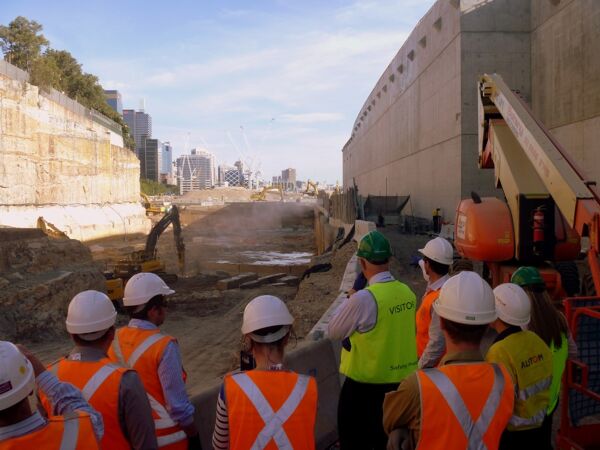Infrastructure projects can increase their compliance with the United Nations Sustainable Development Goals (UN SDGs) by embedding the principles at the procurement stage, experts from Thames Tideway Tunnel have said.
Tideway’s Ines Faden da Silva and Janet Chinnery told attendees at an event organised by the ICE London Graduates and Students Committee how procurement specialists can adopt the values in legacy, sustainable finance and project financing.
Faden da Silva and Chinnery demonstrated how these approaches are interwoven into Tideway’s Green Bond Framework, highlighting the company’s direct contribution to SDG 6 Clean Water & Sanitation and SDG 11 Sustainable Cities and Communities, as well as five other key SDGS linked to the project.
The event, chaired by Mel Allwood, Associate Director for Sustainability at Arup, took place on 2 September at ICE’s Westminster headquarters, and saw leaders in sustainable development present their ideas on good practices and hurdles faced by the construction industry when it comes to implementing the UN SDGs.
The role of global partnerships
Kim Yates, Principal Environmental Scientist at Mott MacDonald, pointed to the steps in place in her own company that ensure projects align with the SDGs, specifically focusing on SDG 17, which stresses the need for global partnership in overcoming key challenges.
She noted that the introduction of Key Performance Indicators (KPIs) at the design stage can help to measure how the project is meeting these targets throughout the bid, project inception, feasibility, design and completion stages.
Another speaker, Paul Mansell, Major Projects Advisor and PhD researcher at UCL and Nathu Puri Institute, used statistics to demonstrate that not all companies are implementing the SDG framework in their projects.
He highlighted 2018 data from the UN showing that the UK will not meet its 2030 SDG targets based on its current progress. Mansell argued that corporate governance is crucial to driving change in this area.
Delivering sustainable development
The UN SDGs, also known as Global Goals, were launched in 2015 and are recognised as the international framework for delivering sustainable development for all countries by 2030.
ICE launched a Sustainability Route Map in May 2019, outlining a three-year plan for the global engineering community to better engage with the UN SDGs, and demonstrate the impact of engineering projects.
Working groups have been set up to tackle three key areas of action, including Measuring, Monitoring and Reporting, Systems Approach and Global Knowledge Sharing.
If you’d like to find out more about these groups, or to share your own SDG successes, visit: https://www.ice.org.uk/knowledge-and-resources/sustainability-route-map
View our Environment and Sustainability training courses.



